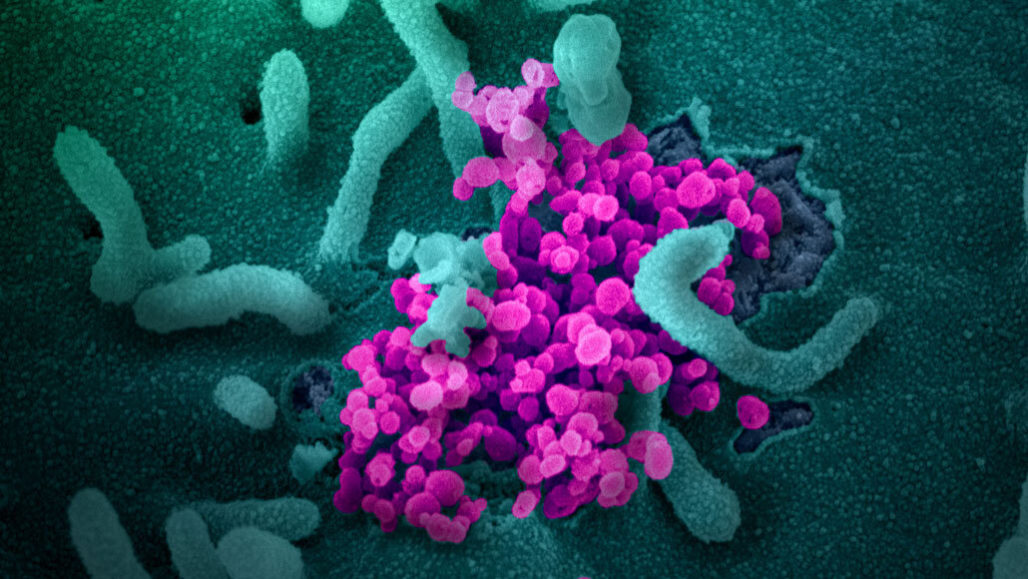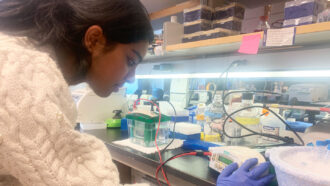app: Short for application, or a computer program designed for a specific task.
coronavirus: A family of viruses named for the crown-like spikes on their surface (corona means “crown” in Latin). Coronaviruses cause the common cold. The family also includes viruses that cause far more serious infections, including SARS.
COVID-19: A name given the coronavirus that caused a massive outbreak of potentially lethal disease, beginning in December 2019. Symptoms included pneumonia, fever, headaches and trouble breathing.
data: Facts and/or statistics collected together for analysis but not necessarily organized in a way that gives them meaning. For digital information (the type stored by computers), those data typically are numbers stored in a binary code, portrayed as strings of zeros and ones.
fatigue: The feeling of being tired, listless or short on energy.
genetic: Having to do with chromosomes, DNA and the genes contained within DNA. The field of science dealing with these biological instructions is known as genetics. People who work in this field are geneticists.
resident: Some member of a community of organisms that lives in a particular place. (Antonym: visitor)
SARS-CoV-2: A coronavirus that emerged in Wuhan, China, in late December 2019. It would go on to cause widespread — and sometimes lethal — disease throughout China and many other nations. Its name reflects its close similarity to the original coronavirus known as SARS (for severe acute respiratory syndrome). That SARS virus sparked a global outbreak of disease in 2003.
smartphone: A cell (or mobile) phone that can perform a host of functions, including search for information on the internet.
symptom: A physical or mental indicator generally regarded to be characteristic of a disease. Sometimes a single symptom — especially a general one, such as fever or pain — can be a sign of any of many different types of injury or disease.
taste: One of the basic properties the body uses to sense its environment, especially foods, using receptors (taste buds) on the tongue (and some other organs).
United Kingdom: Land encompassing the four “countries” of England, Scotland, Wales and Northern Ireland. More than 80 percent of the United Kingdom’s inhabitants live in England. Many people — including U.K. residents — argue whether the United Kingdom is a country or instead a confederation of four separate countries. The United Nations and most foreign governments treat the United Kingdom as a single nation.
virus: Tiny infectious particles consisting of RNA or DNA surrounded by protein. Viruses can reproduce only by injecting their genetic material into the cells of living creatures. Although scientists frequently refer to viruses as live or dead, in fact no virus is truly alive. It doesn’t eat like animals do, or make its own food the way plants do. It must hijack the cellular machinery of a living cell in order to survive.
World Health Organization: An agency of the United Nations, established in 1948, to promote health and to control communicable diseases. It is based in Geneva, Switzerland. The United Nations relies on the WHO for providing international leadership on global health matters. This organization also helps shape the research agenda for health issues and sets standards for pollutants and other things that could pose a risk to health. WHO also regularly reviews data to set policies for maintaining health and a healthy environment.








